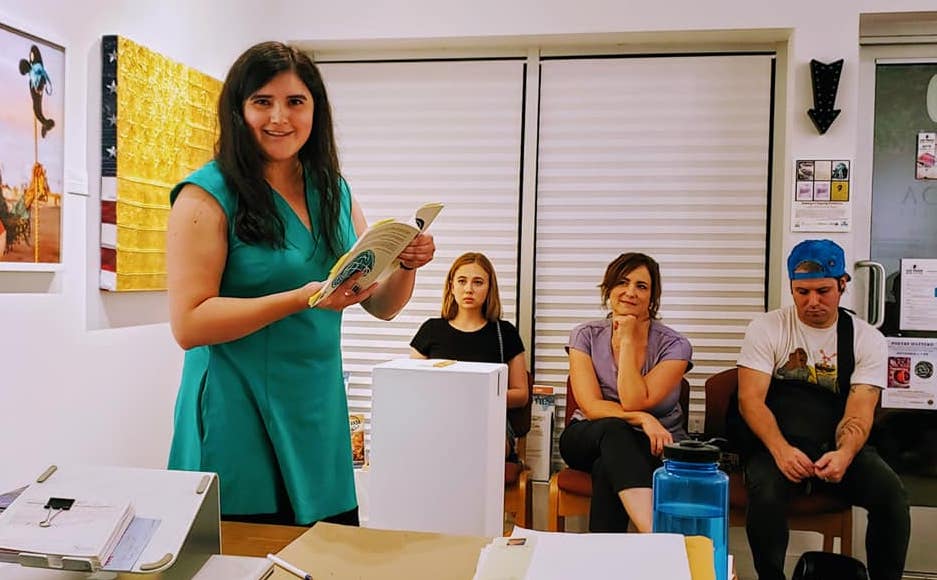“Say cheese, the whole cheese, and nothing but the cheese. So help you mouth.”: An interview with Vanessa Couto Johnson, author of pungent dins concentric
“Say cheese, the whole cheese, and nothing but the cheese. So help you mouth.”
An interview with Vanessa Couto Johnson ('13), author of pungent dins concentric

You’d never know it, watching one of her evocative readings at a local Austin bookstore, or a video of her sharp MFA thesis defense; Vanessa Couto Johnson used to want to be a chemical engineer. She was interested in matter, and how it interacts in unseen realities. But, thanks to college reading encounters with Locke and Hume – “Not for their politics… for the epistemology and metaphysics stuff”— Johnson switched her attention to English literature and found her final form, poetry.
“The way we construct our sentences is so important,” she tells me. This care and precision is evident from the first page of her poetry collection, pungent dins concentric. Every word feels essential and contains multitudes. Throughout her first full-length, Johnson parenthesizes her titles—"sp(ice)” and “impen(ding)” just a few examples—exploring the embedded potentialities of language. “I was thinking of how there are words within words, and trying to take advantage of that richness,” she explains. There are no line breaks, either, and there’s a good reason: the substance receives priority. “I went with this form because of how wild my content is. Having line breaks on top of that would have been complicated.”
In her first chapbook, life of Francis, she synthesizes the vernacular of a textbook: Physics for Scientists and Engineers. In her second chapbook, rotoscoping collage in Cork City, she employs italicized sentences from the film Waking Life, attributing the dialogue within parenthetical titles. In her most recent chapbook, speech rinse, she combines anagrams, lipograms, and palindromes to remarkable effect. In terms of successful experimentation, Johnson’s work would sit prettily beside Lyn Hejinian, a founding figure of language poetry, whom she admires.
The American daughter of a Brazilian immigrant, Johnson has trained herself to navigate dualities elegantly, even the difficult ones. In one poem, Johnson writes, “My ancestry percents itself”; in the next, she pleads, “Tell me how populated I am.” Rather than aiming to necessarily resolve the various tensions, her explorations seek to negotiate a better understanding. “I think guiding yourself by pleasure or happiness isn’t always right,” she explains. “Sometimes it’s just important to minimize pain.”
Johnson will be teaching a Graduate Poetry Workshop at Texas State in Spring 2020. As she challenges herself in her own writing, Johnson encourages her students to experiment in all facets of the writing process. Her workshop guidelines require students to submit “writing that involve trying something new… whether this be form, technique, subject matter, or writing process.”
When she’s not teaching at Texas State, Johnson powerlifts, teaches community creative writing workshops, and is at work on another full-length collection.
---
By Caleb Ajinomoh ('22), Fall 2019